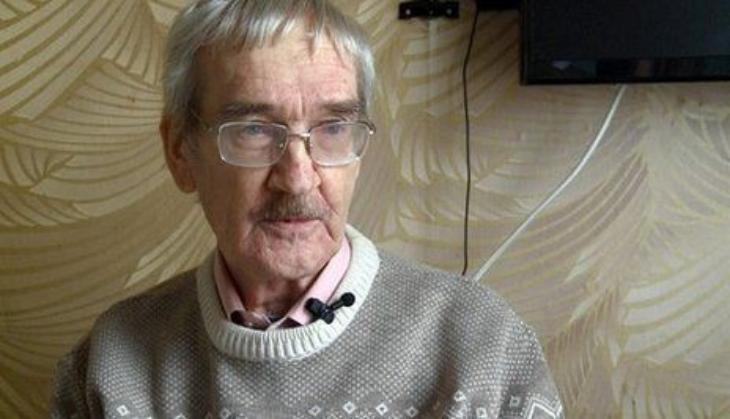Colonel Cool: Soviet officer who prevented nuclear war
The night of 26 September 1983, could have been the world's last if this "badly-frightened" Soviet officer in command at a missile launch warning centre outside Moscow had gone strictly by the book. His shift began normally enough at 7 p.m., but turned into a nightmare just after midnight when warnings flashed that five American ICBMs had been launched at the Soviet Union.
As per protocol, Lt Col Stanislav Petrov was to instantly alert his military bosses. They, in turn, would have just a few minutes to advise the Politburo who could have well decided to retaliate, thus setting off a catastrophic nuclear war -- for these were no ordinary times, with Soviet-US relations at a poisonous low. It was also just weeks since the Soviets had shot down a South Korean passenger aircraft which had strayed into their territory.
But Petrov, who died mostly unsung earlier this year -- with even this fact not coming to the world's notice till this week -- kept his cool and, within seconds, concluded something was wrong with the systems and remained firm in that belief.
The scene unfolded at 12.15 a.m., when a thin silent panel in the room, lit up with "LAUNCH" in bright red letters. As sirens wailed, a map illuminated an American missile base, and his subordinates jumped out of the chairs and looked at him for directions. Petrov too stood up from his comfortable swivel chair, his mind working furiously.
Ordering them not to panic and to sit down and start checking the system, he set about finding out fast if a missile was really heading their way or if it was a glitch. But a system check would take 10 minutes at least and if it turned to be real, did he have any time to spare?
As US journalist David Hoffman recounts this episode -- based on interviews with Petrov himself -- in his Pulitzer-winning "Dead Hand: Reagan, Gorbachev and the Untold Story of the Cold War Arms Race", the cool colonel kept his head and worked very methodically to make sure -- very sure.
Intently scrutinising his monitors, which included data from an optical telescope that had no sign of any missile, he quickly ran through the possibilities: If it was only one, was it accidental or unauthorised, and "concluded it was not likely".
"...And if one missile was launched, he thought, what did that mean? This was not the way to launch a nuclear war. For many years, he had been trained that a nuclear war would start only with a massive strike. He said it again, to himself: This is not the way to start a nuclear war."
Without completing his checks and only on the basis of his gut instinct, he told the duty officer that it was a false alarm. But the phone was still in his hand and the duty officer still on the line when, two minutes later, the panel showed another launch, and then a third, fourth and fifth.
By now terribly frightened, his legs seemingly paralysed, Petrov remained firm there was a glitch, and he again told the duty officer that it was a false alarm, and this was passed up the chain. Thankfully for the world, his superiors agreed and it was later found that the "alarm" followed a satellite mistaking sun rays reflected off clouds for a missile launch.
In the army for over a quarter of a century by then, Petrov was more of an engineer than soldier. The deputy head of the Combat Algorithms Department, he was into writing software but took operations shift at least twice a month to see how the system was functioning. He retired in 1984 and was never commended for his role; he was, in fact, reprimanded for not reporting the episode correctly in the logbook.
The story of that eventful September night was only revealed in 1998 in the memoirs of Gen Yury Votintsev, the retired commander of Soviet missile defence. It was then that Petrov, who had not even told his wife of the incident, achieved his long-due recognition as "The Man who Saved the World", according to a 2013 documentary narrated by Kevin Costner.
But he remained modest, saying he had "just done his job".
Petrov's death was only revealed this month when a German journalist who had once interviewed him called to wish him on his birthday (September 9) but was told by his son that he had died in May, aged 77.
-IANS

